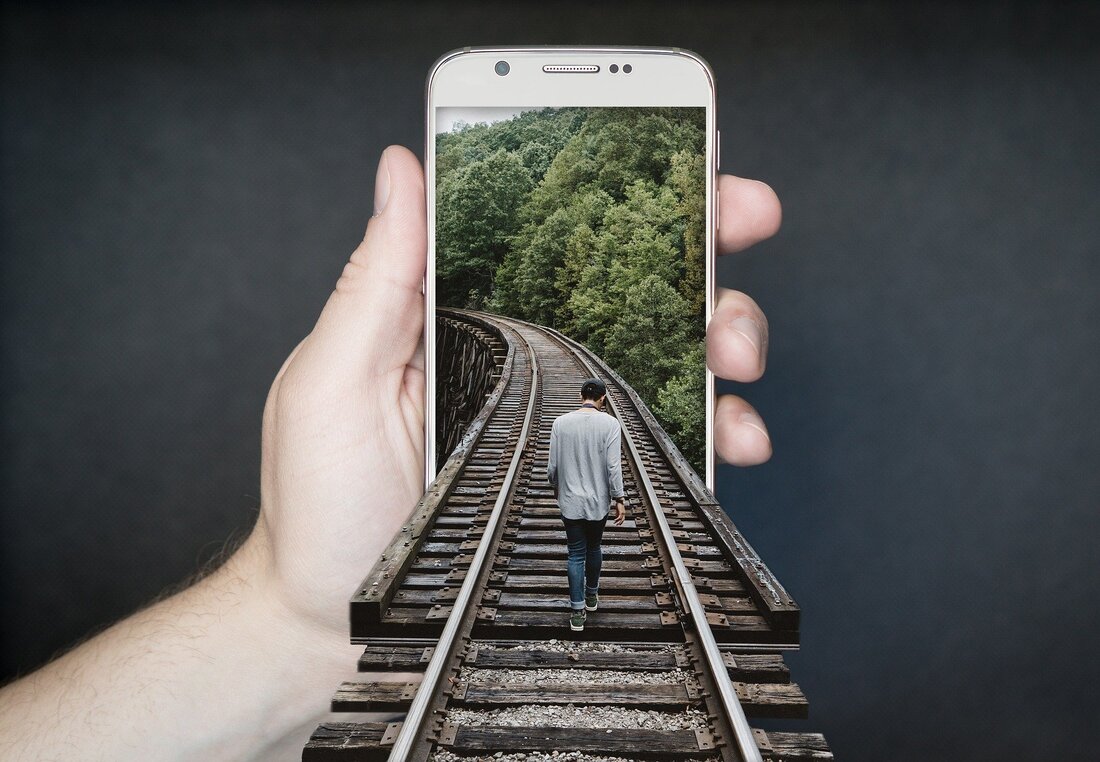Every time I get on the tram I look around and I see, I will make an estimate, that 9 out of 10 people are on their mobile phones or digital object all the way till they get out of the tram, even as early as 7 in the morning. Sometimes they are in conversation with someone on the phone, not realizing that the rest of us can hear every detail of their conversation and of course there are those who have headphones on, sometimes sharing their music with the rest of us. I get out of the street and it continues, some are walking while still looking into mobile phone, almost walking into another person and others with headphones on, not realizing that a car just came to an abrupt stop, trying to avoid a collision with them. This are some of the moments I remember Mrs. Wong. Since I grew up in Malaysia, where cars do not stop for pedestrians and if you do not hear a person creeping up behind you to rip the jewelry off your neck, this all seems foolish and risky to me. But what of the people here in Switzerland, do we have to wait till cars drive over pedestrians regularly or for crime becomes the norm to wake-up our numbed senses? "Use it or lose it," our sense organs need stimulation, but just enough and appropriate stimulus that connects us to our environment.
We have become a society of "information consumers." This is not a coincidence when you look into the developments in the western world since the 1950s, as we have been trained and groomed to accept these changes, adapting technology as part of our daily lives. Television used to be/possibly still is in certain places the main mode of media in households; it shaped how people created their living space, with seats placed around a TV; it created interactions with the people closest to them like family, eating meals in front of the TV together or determining the time to a meal to correspond to a TV series; TV gave us the creation of the "couch potato" body. Instead of what was sold to us as one of the reasons for technology, that technology will make our lives easier, WE have been shaped to the needs of technology. Industries, jobs, language and gadgets have been developed to serve this so-called need.
TV was just the warm-up, now we have digital devices like computers, digital tablets and of course our most consumed mobile phones. We can access information and "connect" with anyone everywhere and at anytime on our mobile device. In fact, many of us do, irrespective of others around us; we connect with whoever or whatever on the mobile phone and disconnect with the physical reality as well as people around us. When we bombard our sense organs, i.e. eyes, ears and skin, with constant information, can we even process these to become more informed or even intelligent? Neuroscientist, Beau Lotto, in his book, "Deviate" describes in Chapter 2, "Information is Meaningless" of our time:
"It is the Age of Reason pushed into the new frontier of the Digital Age. This unprecedentedly accessible, ever-expanding web of data has altered our daily existence, and yet very little is translating into new understanding. This is because when it comes to creativity, success, and even personal happiness, information isn't itself power." (Lotto, 2017, 44)
Personally, as a parent I find it challenging, disturbing and even downright infuriating that I have to filter the technology that has slithered into our consciousness and homes. We have let technology and its industry to grow unchecked like weeds, that is starting to hijack our information, which by the way Big Tech takes for free, when we use our digital device unconsciously through Surveillance Capitalism. Just because something is convenient, it does not make it good or appropriate for habitual use. Do we need to wait till the "Smartphone Slump" becomes the norm in our children before we act? It is time to wake-up our "true senses," unplug ourselves from the digital fog, so that what used to be more common becomes the norm again.
Reference
Lotto, Beau (2017): Deviate - The Creative Power of Transforming your Perception. London: Orion Publishing
Image by FunkyFocus on Pixabay


 RSS Feed
RSS Feed